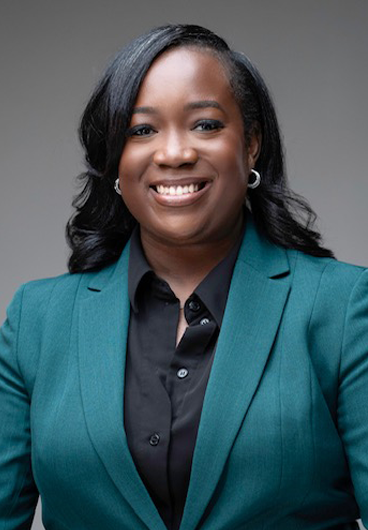
Laura Dixon
John Barry Elementary School
Meriden, Connecticut
laura.dixon@meridenk12.org
Best Practices
1) Parent and Community Relations: As an instructional leader, I prioritize fostering a collaborative relationship with parents and the community. This best practice has been instrumental in creating a supportive learning environment and improving student outcomes. I have seen significant growth in family and community engagement by implementing key strategies, including the LEAP initiative, increasing parent involvement, partnering with community organizations, and maintaining consistent communication about attendance, achievements, and more. One of the most impactful strategies to support families has been LEAP. As John Barry’s LEAP Team Leader, I plan and organize all efforts on behalf of this State initiative. Home visits, a cornerstone of LEAP, have provided personalized engagement with families. These visits, especially important for families facing challenges, build trust and open lines of communication. LEAP also includes events that celebrate student engagement and provide parents a chance to engage directly with their child’s academic journey. The Scholastic Book Fair has become a central event for parent involvement. By encouraging parent volunteers, we have created a platform for them to actively participate in school activities. I create a schedule of support and regularly communicate with families as they enter the building to work registers or purchase items with their children. The event significantly fosters a culture of literacy and allows parents to see the school as a welcoming place. It is also one of our biggest fundraisers of the year! Partnerships with community organizations are also crucial. The Meriden Rotary Club has partnered with us to bring monthly book readers into Kindergarten and First-Grade classrooms, encouraging a love of reading at an early age. McDonald’s has provided resources for various school events and supported student attendance with free food and paraphernalia! In addition to these community-building efforts, increasing parent communication has been a priority of mine through consistent contact and meaningful interactions. Engaging with parents during arrival and dismissal allows for regular updates and relationship-building. I emcee monthly “Student of the Month” ceremonies celebrating student achievements while welcoming families into the school. I share positive messages and calls home highlighting various heritage months, great attendance, and student progress, fostering a positive rapport. Lastly, supporting events like Moms & More (Arts & Crafts with Mom figures) and our Multicultural Fair bring families together, creating a warm, inclusive atmosphere that strengthens the school community and supports student success. These best practices have greatly improved our school’s relationship with parents and the community. Through personalized outreach, community partnerships, and consistent communication, I have built an environment where parents feel valued, involved, and connected to their children’s education.
2) Teacher and Staff Development: Coming from a turnaround school, my approach to teacher and staff development has been shaped by the necessity to promote high-quality instruction, drive continuous improvement, and foster an inclusive learning environment. My experience has highlighted the importance of setting clear goals, providing consistent feedback, and creating a culture of high expectations. One of the key strategies I have implemented is hiring high-quality, diverse teachers. Understanding that a diverse teaching staff reflects the community and enhances students’ learning experiences, I prioritize diversity in hiring to ensure varied perspectives and approaches in the classroom. This has had a profound impact on school culture, as students see themselves represented in their teachers, fostering a stronger sense of belonging and motivation. High-quality instruction starts with high-quality teachers, and, by being intentional in the hiring process, I have contributed to building a strong instructional foundation for our school. Setting high expectations for teachers and students is a core part of my leadership through the TEVAL process. By aligning teachers’ goals with student achievement and school-wide initiatives, we create a shared vision of excellence. This process ensures accountability while offering opportunities for professional growth, as teachers receive timely feedback and support to refine their practices. To support these expectations, I support and engage in frequent walkthroughs, which provide immediate and actionable feedback to teachers. Teachers benefit from real-time insights into their instruction, while I gain valuable data on instructional trends and areas requiring additional support or resources. Focused Professional Learning Communities are another crucial element in enhancing staff development. These communities provide a structured environment for teachers to collaborate, analyze student data, and share best practices. By facilitating and supporting these groups, I ensure that professional development is not a one-time event but an ongoing process. This collaborative approach has empowered teachers to align their instructional strategies to meet the needs of all students. My equity work has further contributed to creating a safe and productive learning environment for all students and staff. I deliver equity training to my school and to new teachers in my district. As a member of an Affinity group, I provide new and seasoned staff with support and connections, creating a network where teachers feel valued and understood. This group fosters a sense of belonging among staff and serves as a platform for addressing challenges related to equity, ultimately improving school culture and retention. My leadership implementation of Positive Behavior Interventions and Supports (PBIS) has also strengthened our school’s climate. By setting up a school store and refining the referral system, I’ve created a more structured and positive behavior management framework. Supervising our school climate specialists has ensured that their schedules and meetings are aligned with the broader goals of PBIS, contributing to a supportive environment where positive behaviors are consistently reinforced. In summary, my commitment to high-quality instruction, equity, and professional development fosters a collaborative, supportive, and high-expectation culture. Through hiring practices, TEVAL, equity work, and PBIS initiatives, I am contributing to a school environment where teachers and students thrive.


